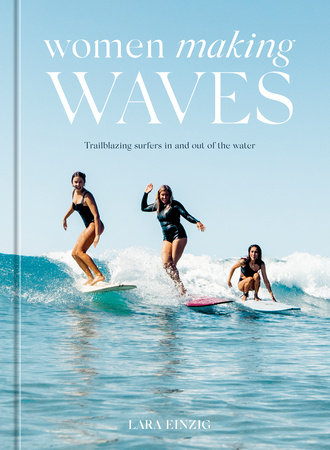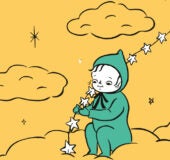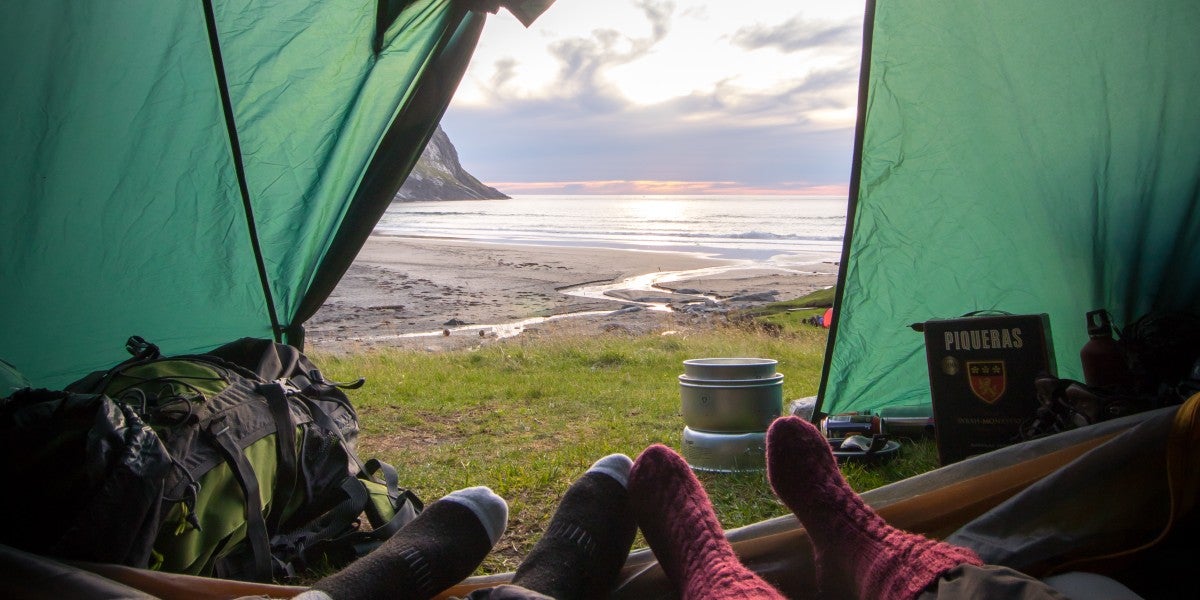IntroductionI was born and raised on the East Coast of Australia, where endless summers were spent at the beach with an extended clan of cousins, aunts, uncles, and grandparents. We were the typical Aussie beach family—a large, rambunctious crew of groms, all salty hair, deep tans, weather-beaten feet that hadn’t seen shoes in weeks, zinc-smeared faces in Day-Glo colors, faded togs, frothing for our next adventure in the waves.
We were kids of the “Slip-Slop-Slap” generation, the iconic sun protection ad campaign that was drilled into every Aussie’s consciousness from a young age—“slip on a shirt, slop on sunscreen, and slap on a hat!” While my male cousins surfed shortboards at a rather perilous and unpredictable beach break at Warana on the Sunshine Coast of Queensland, my sisters and I would happily boogie board and swim alongside them for hours on end. Back then, it seemed like surfing wasn’t really for girls. The only surfer girls I ever saw were the pros on TV—Layne Beachley, Wendy Botha, Pam Burridge, Lisa Andersen. And although I was a fully fledged waterbaby having successfully navigated my way through almost every water sport available, I had accepted that surfing was out of reach, not for me—a boy’s thing.
It was only many years later, after a twelve-year career in London’s fashion scene, that I decided it was time I learned to surf. My career in fashion marketing ran the gamut from wildly creative collaborations with global industry icons to the unrelenting hamster wheel of newness and innovation. We had moved our young family to Los Angeles, and initially my need to be in the water was fueled by grief. I had just lost my youngest sister, Julia, to the devastating effects of mental illness back in Australia, and the ocean of sadness, shock, and sense of loss were debilitating. I felt closer to her when I was in or near the ocean, and like many of the women profiled in this book, I knew instinctively that the ocean would heal me.
Some months later, while floating on my board at County Line (a rite-of-passage wave just north of Malibu), I came to a decision that has since steered my life: I would never go back to working for someone else’s dream, on someone else’s schedule. From this point on, my life—and my career—would be on my terms. Only then was I able to fully understand and truly feel a fundamental connection to the ocean, to nature itself. This was the moment that changed everything.
And so the healing began. I started my own business while caring for my young family, and in the stolen moments in between, I surfed. Lessons in Santa Monica soon turned into solo sessions up and down the Pacific Coast Highway, no matter the weather or conditions. I surfed dawn patrol, after school drop-offs, weekends, whenever I could get my fix, and when I wasn’t surfing, I was dreaming about my next wave. I had become a waterwoman, and the obsession ran deep. Drawn to this new Californian community on the water, I dove back into surf culture. I found a home on Bay Street, the epicenter of Dogtown and Z-Boys, and traveled to Hawaii’s North Shore. With firsthand experience of these legendary breaks, cult documentaries like
View from a Blue Moon, Andy Irons: Kissed by God, Step into Liquid, Momentum, and
The Endless Summer took on a more familiar perspective, and I found unexpected inspiration the deeper I went.
What I didn’t find represented, though, were the women. So many of the stories were cast through the male lens, and the exhausted clichés of bikini-clad girls on the beach were ever present. Where were the empowered female surfers I met in the lineup? The generous, supportive, funny, determined women changing out of their wetsuits in the parking lot, getting ready for work after a two-hour session at Rincon? I wanted to know who these women were, to find out their stories, why they surfed. What is this potent draw that collectively captivates and compels our lives to a logistical feat of dawn raids and cumbersome equipment? That empowers us to engage with a competitive, crowded, and sometimes aggressive playing field? That compels us to battle with and submit to Mother Nature in all her unpredictability?
As a female surfer, how do you wrestle with the idea that, although you will often be outnumbered, you not only deserve to be in that lineup but were born for it? Women and water have long been intertwined culturally and symbolically, representing birth, rebirth, transformation, and creation. In ancient communities, water was often considered a feminine realm inhabited by mythological beings illustrating the deep connection between women and water, perhaps echoing the continuous role that women have played in protecting marine life.
Professionally, women surfers have long experienced inequality and misrepresentation, but collectively they are reshaping the landscape. It has taken many years and the determined efforts of countless women, many of whom are profiled in this book, to challenge the status quo. Female surfers are at last being recognized on equal footing with their male counterparts. Men and women now compete for equal prize money in all World Surf League tournaments, and sponsorship opportunities are improving. These sponsorships allow pro women surfers to dedicate themselves more fully to their sport rather than compromising their training and competition with contractually binding bikini photo shoots. Social media has allowed many female surfers to build their own powerhouse brands and set up nonprofits, ecoresorts, surf wear companies—and ultimately change the rules of the game.
Few surf books exist about women, but that doesn’t mean women haven’t always been in the water. Female surfers have always had a resounding voice and an empathic presence within the surf community. Today their voices are growing louder, and people are hearing them more clearly. And for good reason. The women I met in the lineup and those included in this book share commonalities that transcend surfing: strength, resilience, courage, determination, curiosity, and style. They share an independent spirit and an authenticity that is encapsulated in their attitude. Often nonconforming and offbeat, sometimes irreverent and rule-breaking, and always tough and opinionated—frankly, in the lineup, we are given very little choice in the matter! It’s these qualities and alternative perspectives that will not only inspire more women to surf but perhaps help shift the dial on some of the world’s most pressing and urgent issues.
This book honors and celebrates the trailblazers and the wave makers. I wanted to explore the existential commonalities among female surfers, to pick apart the traditions of the subculture, using their voices to share memorable, compelling, purposeful stories and messages. Their words offer up learnings and advice to those pondering their own surf life. Their experiences shred stereotypes and flip paradigms. Ultimately, this book showcases the real women who are redefining surf culture with inspirational stories and inimitable style both in and out of the water.
The women featured here are an eclectic, diverse group from around the world, each with their own intimate relationship to the ocean. They are
real women: diverse in age, ethnicity, religion, backgrounds, opinions, and surfing abilities. I met with world champions, big-wave record-holders, mothers, adventurers, industry leaders, artists, doctors, and activists. They are riding giants, defying norms, dismantling the establishment, fighting for diversity and equality, and calling out injustices. What connects these women is the sisterhood of surfing. They may take to the water for vastly different reasons, but the practice offers them each the same profound reward. Surfing is simultaneously challenging, calming, healing, and humbling. It both magnifies and microscopically sharpens your focus. It reveals a strength from within that otherwise might remain hidden. And it offers a space for meditation and perspective. Each time you enter the water, you return to the shore—transformed.
Just imagine the forces of change we can inspire and create when we mobilize this dynamic vanguard, acknowledge the definitive truth that the future is female, and understand that surfing is not only a sport—it’s a way to change the world.
—Lara Einzig, Venice, California
Copyright © 2022 by Lara Einzig. All rights reserved. No part of this excerpt may be reproduced or reprinted without permission in writing from the publisher.




















